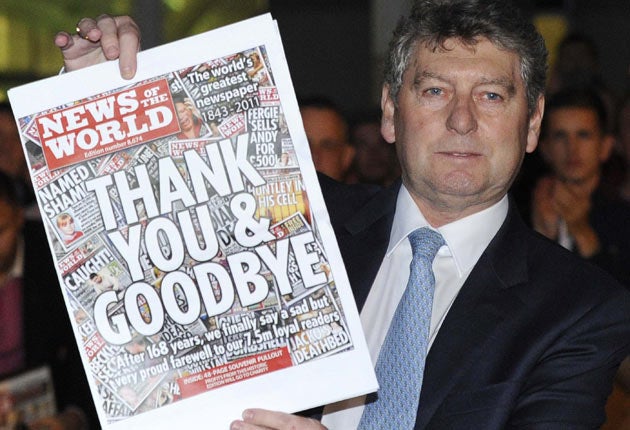Andrew Grice: Thirst for revenge should not hinder a free press

The former Cabinet minister bounded up to me with a glint in his eye. "Hacking is the press's equivalent of our expenses scandal," he barked with relish. It was one of several such conversations. "Who says we can't have statutory regulation?" another former minister told me. "It would be easy. All you do is write the [newspaper industry's] code of practice into the law of the land."
I have been surprised by the thirst for revenge displayed by politicians following the hacking scandal. Some still nurse wounds from the way the expenses scandal was reported, believing it was done in the most cynical way possible to undermine politics. They have a point, although it was right to publish.
Lord Kinnock, who can be forgiven for wanting revenge on the Murdoch empire after the way it treated him, is the thirstiest of them all. In a remarkable interview on BBC Radio 4's Today programme on Wednesday, the former Labour leader proposed a "balanced press" with a law to ensure impartiality like the one which applies to broadcasters and to prevent concentration of media ownership. "We would live in a much freer country," he said.
But would we? That country might not enjoy a free press. The danger is that newspapers would be controlled by Big Brother politicians. His interview should serve as a warning to other politicians not to rush into a regulatory system which kills the very investigative journalism which exposed hacking in the first place.
Everyone is putting the boot into the Press Complaints Commission (PCC) but some criticism has been unfair. Mr Miliband got his facts wrong when he said a majority of PCC members are from the newspaper industry. (Seven come from it while 10 are outsiders.) Mr Miliband was on safer ground when he said that serving editors should not sit on PCC committees. Labour may propose a new professional body for journalists with the power to strike people off for malpractice. The idea is that this would help reporters to stand up to over-zealous bosses who ordered them to do something that might breach the code.
The PCC's successor will probably need the right to impose tougher sanctions against papers which flout the code. It will have to cover the whole industry; Express Newspapers has weakened the current system by pulling out of the PCC.
It is unfair to blame hacking on the failures of the PCC. Of the three bodies who were lied to by News International – the PCC, Commons select committees and the police – only one had the means to investigate what is after all a criminal offence. Even Tom Watson, the Labour MP who has done so much to expose hacking, supports tougher self-regulation with sanctions. Before rushing to judgement, his fellow MPs should take that very seriously indeed.
Subscribe to Independent Premium to bookmark this article
Want to bookmark your favourite articles and stories to read or reference later? Start your Independent Premium subscription today.

Join our commenting forum
Join thought-provoking conversations, follow other Independent readers and see their replies